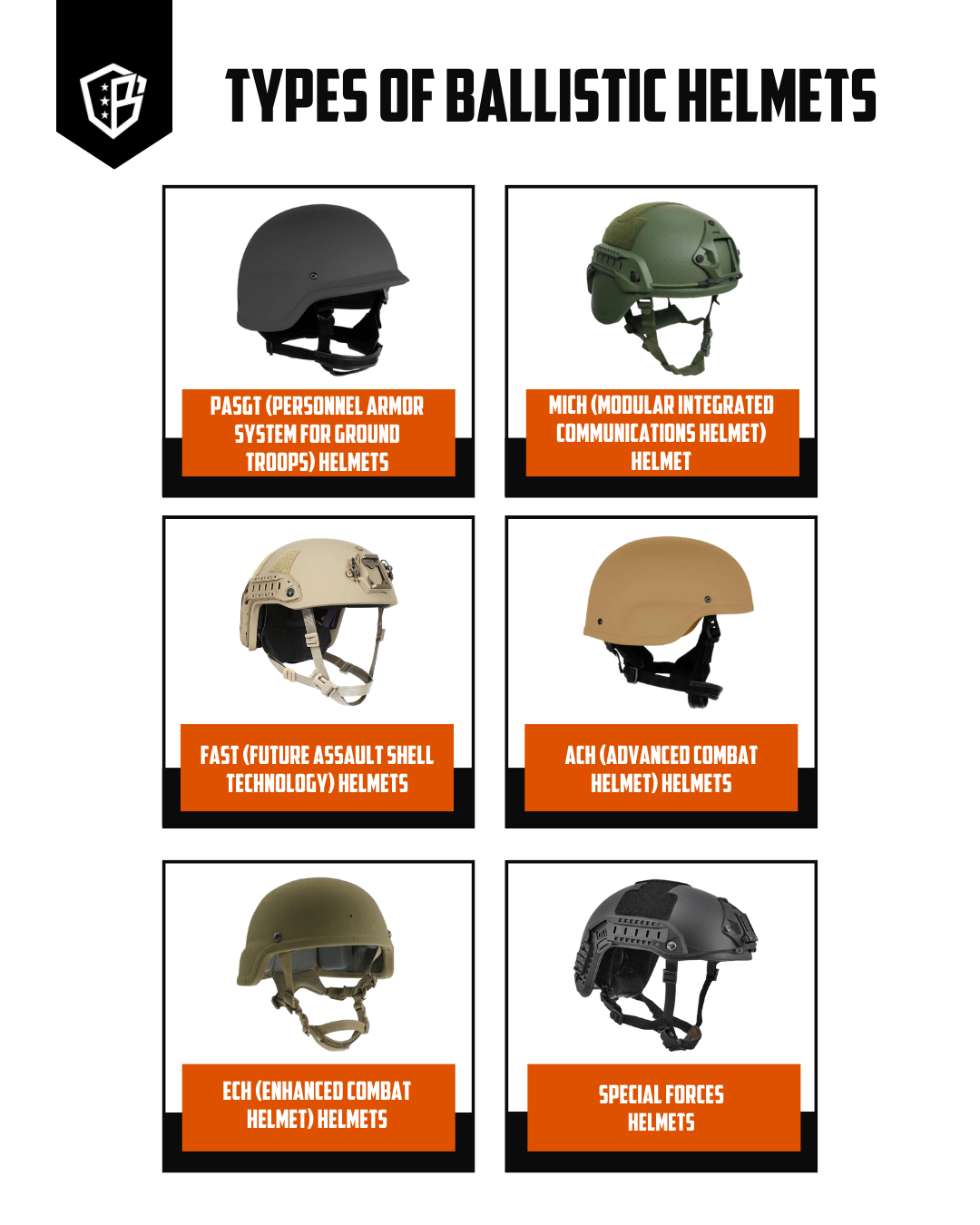- Secure Payments
- Free Shipping on Orders Over $100
- Trustpilot Approved
- Satisfaction Guaranteed
What is a Ballistic Helmet?
Ballistic helmets, also known as bulletproof helmets or tactical helmets, are designed to protect the wearer's head from bullets, blunt impact, shrapnel, and other threats.
Helmets are one of the oldest types of body armor, dating back to the 23rd century BC when they were worn in wars and combat. Hundreds of innovations and re-designs have gone into their evolution to what a bulletproof helmet is today as they are one of the most important pieces of personal protective equipment available and are utilized by law enforcement, the military, and even civilians all around the world.
What are ballistic helmets made of?
From bowl-shaped steel shells to hard hat type liners, the ballistic helmets we know today have evolved into different cuts, types, and materials.
The number of choices available to you and finding the perfect fit can be daunting, especially if it’s your first time investing in one. However, it all comes down to the right priorities for your protection.
To date, body armor manufacturers have incorporated different materials in order to improve the bullet proof quality and comfort of a ballistic helmet such as Ultra High Molecular Weight Polyethylene (UHMWPE), commonly referred to as Dyneema or Spectra and is a lightweight high-strength strand type fiber.
It provides a great bulletproof ability and is combined with other materials to achieve the desired performance. Another is Twaron, first used commercially in 1986 and another strong synthetic fiber of the Aramid family developed by Teijin.
What are the common types of ballistic helmets?
The Future Assault Shell Technology (FAST/High Cut/ATE) helmet, the Modular Integrated Communications (MICH) helmet, and the Personnel Armor System for Ground Troops (PASGT) helmet are the most common types of ballistic helmet on the market today.

The PASGT is the oldest design of tactical helmet and was used by the US Military from 1983 to mid-2000s. Its predecessor, the MICH helmet, was designed to be a lighter and more comfortable type of bulletproof helmet. Rails were also added for accessories like NVG mounts without the need to do additional drilling to the helmet.
The FAST helmet, with its most noticeable trait being the high cut sides, is specially designed to allow additional features like communication headsets that can be attached with rail adapters.
Each bulletproof helmet type has its own history, design, and function in providing ballistic protection. They usually have an NIJ Level IIIA armor protection level, which have been tested against most handgun rounds like the .357 SIG FMJ FN and the .44 mag SJHP.
Is a ballistic helmet/tactical helmet worth it?
Wearing a ballistic helmet can give you two of the best functions you can find in any piece of body armor. Aside from providing ballistic protection with their NIJ Level IIIA rating, blunt impact injuries, and debris fragments, a ballistic helmet can also serve as mounts for additional gear.
Many modern bulletproof helmets, particularly those used by the military and law enforcement, must be able to support communications equipment as well as various gear and accessories such as an NVG shroud (night vision goggles).
How to Setup a Ballistic Helmet/Tactical Helmet?
As one of the key equipment for military, law enforcement, and civilians, ballistic helmets are also used with several equipment and attachments that are vital to the user's needs. This could be in the form of NVGs, mounts, cameras, lights, etc.
Check out some of our favorite setups in our article "The Perfect Tactical Helmet Setup" to give you an idea on how you can also make the most out of your ballistic helmet.
Bulletproof Zone – your ultimate resource for all things Body Armor
Regardless if you are from law enforcement, military, or a civilian, make sure that you and your loved ones are provided with the highest quality protective equipment.
Get started with our complete guide to Everything You Need to Know about Bulletproof Helmets and learn more about its brief history, why there are so many types of helmets, and the most important question – is a ballistic helmet legal?
Once you’re ready, make sure you get the correct helmet size for you (do not skip this step!).
We hope we got everything covered! Do not hesitate to let us know if you need any assistance and our customer service team will surely be happy to assist you in making the best choice!
